Faculty Faculty of Engineering Electrical, Electronic and Information Engineering
Active in CASE society.
Faculty Faculty of Engineering Electrical, Electronic and Information Engineering
Active in CASE society.
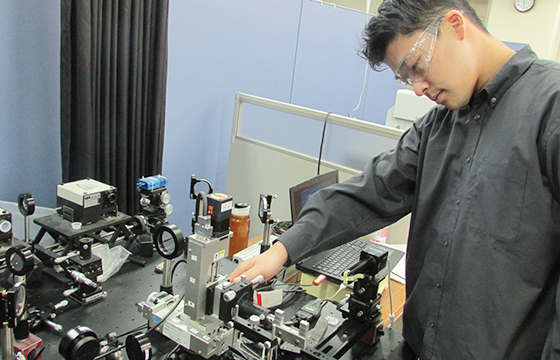
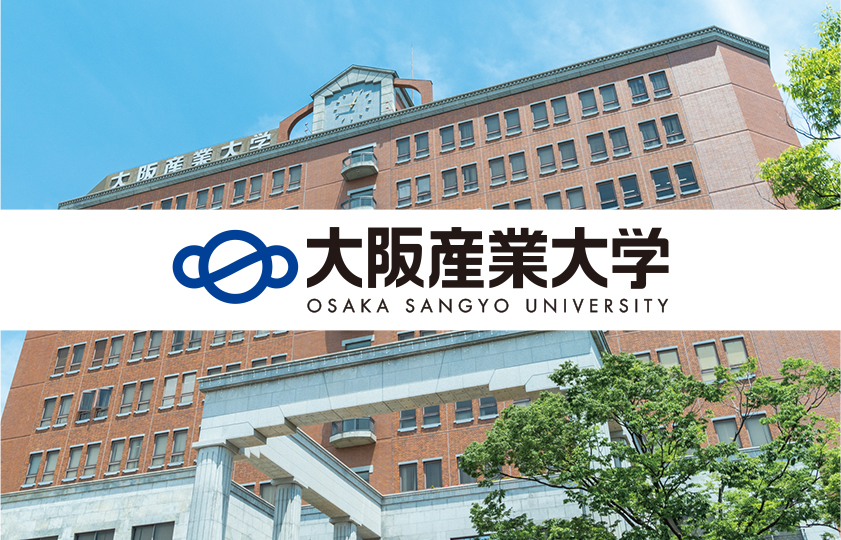
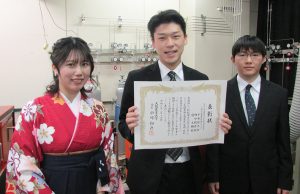

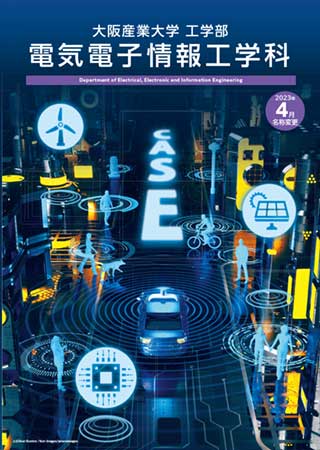

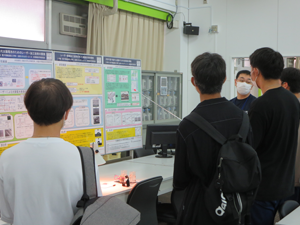
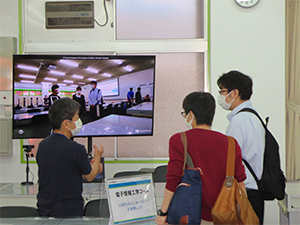
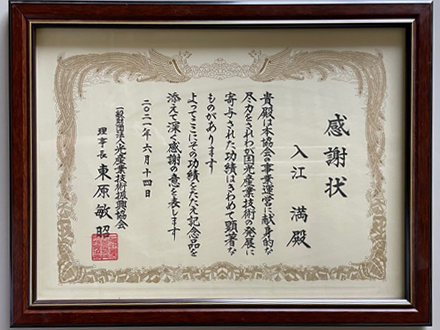

In the coming CASE society
Become the cutting-edge engineer in demand
In the field of electrical and electronic engineering, there is a shift from fossil fuels to renewable energy and from internal combustion engines to electric power systems, and in the field of electronics and information engineering, significant information is being gained through the collection and analysis of big data via the Internet. We are moving towards a society called CASE (C: Connect, A: Automation, S: Share & Service, E: Electrification), such as extraction and utilization and the realization of artificial intelligence that complements and surpasses human abilities. The Department of Electrical, Electronic and Information Engineering focuses on "electricity" and "information," and develops cutting-edge engineers who can improve their specialization in each field and handle high-value-added technical fields that combine the two.
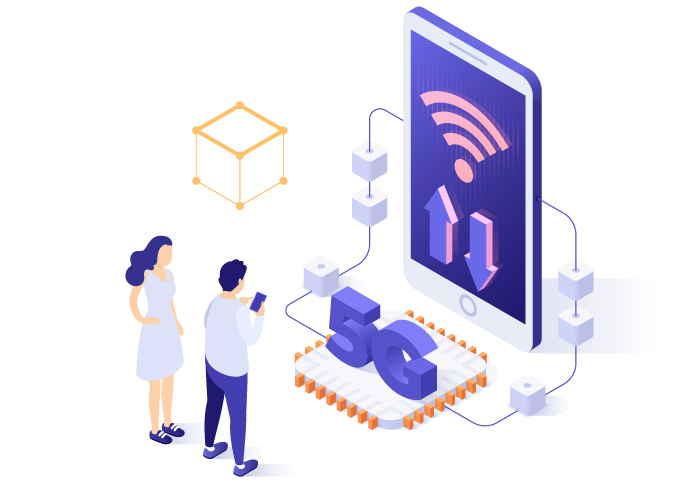
01
Electrical, electronic and information engineering
A wide range of learning from basics to applications
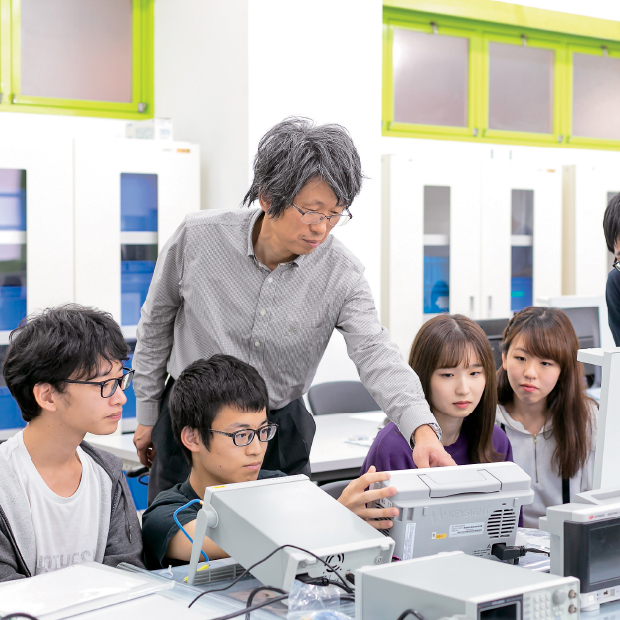
In the first year, students learn the basics of electrical and electronic engineering and electronic information engineering in a well-balanced manner, and from the second year onwards, students can choose courses according to their interests. Your expertise will further increase through deeper experiments and research.
02
Classes by proficiency level
Learn effortlessly
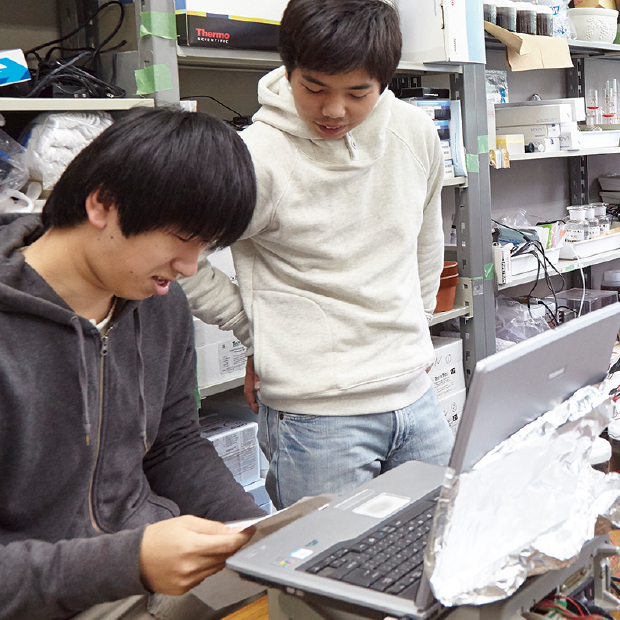
Classes are organized according to proficiency level for basic engineering subjects such as mathematics and physics, which are essential for learning in this department, and basic subjects of the department such as electrical circuits and programming. Depending on your level, you can easily deepen your understanding.
03
Hardware & Software/Energy
There are various career paths you can pursue as an engineer.
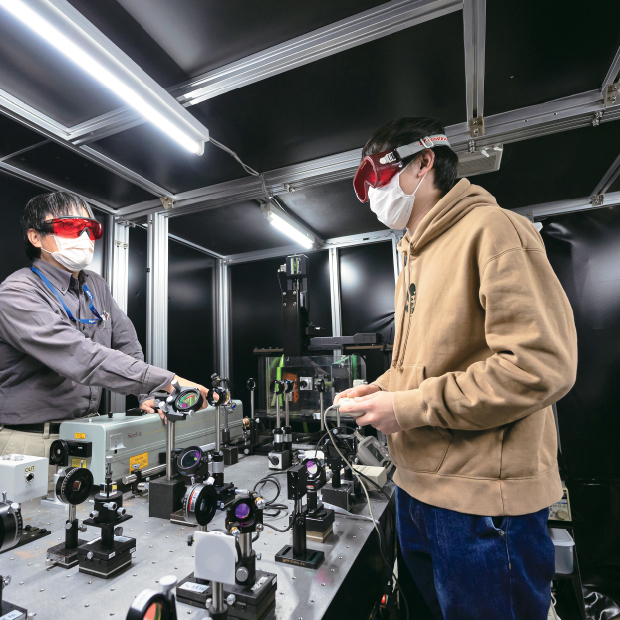
There are a variety of career paths available, including electronic circuit and semiconductor design at home appliance, communication equipment, and machinery manufacturers, software development at IT companies, and power network design and implementation at infrastructure companies. It is also possible to obtain various teaching licenses. In addition, in order to obtain even more advanced specialized knowledge, it is possible to proceed to graduate Osaka Sangyo University Graduate School.
Electrical and electronic engineering course
Students will learn about hardware based on electromagnetism and electric circuits, and deepen their understanding of semiconductors, electronic devices, optoelectronics, and energy.
Electronic Information Engineering Course
In addition to the theory of information and communication, you will study both software such as hard programming of digital circuits, and deepen your understanding of information and communication networks.
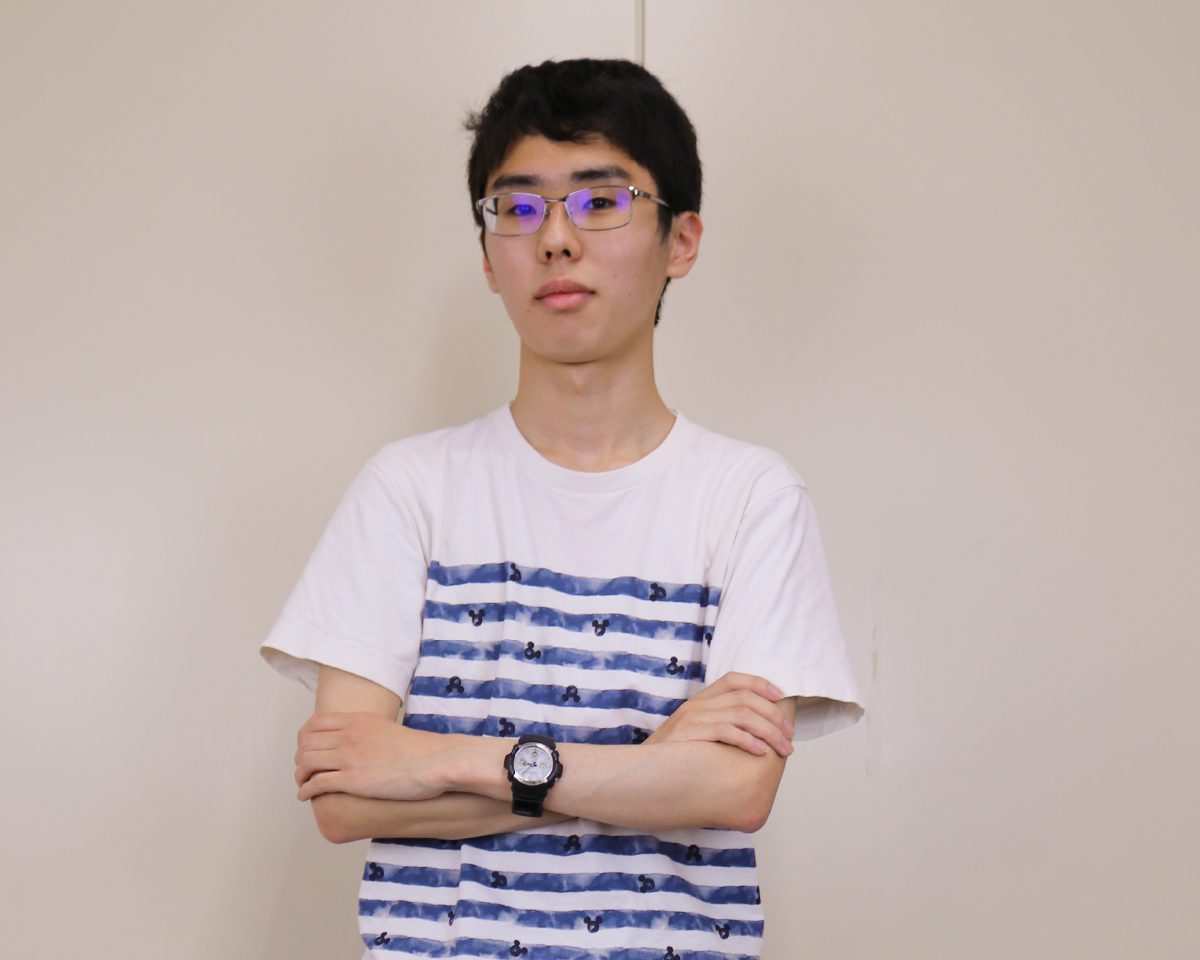
Shu Morikawa
SYU MORIKAWA
learn programming
I want to become the SE of my dreams.
In addition to the environment in which I can study information engineering and the high employment record, the positive impression of the open campus was also a deciding factor in my decision to choose this department. From second year onwards, students are enrolled in the electronics and information engineering course, where they study programming, electronic circuits, information communications, networks, etc. Starting in the third year, students are planning to take a seminar where they can research data mining, machine learning, and natural language processing. While improving my own expertise, I will use Career Center to work hard on job hunting and aim to become a systems engineer.
1st year
Introduction to university education
Rest assured, classes are organized according to your level of proficiency during high school.
2nd year
Specialized basic skills training
Establish basic knowledge to smoothly learn specialized subjects
3rd year
Applied skill development
Study in each field and also take subjects common to each field.
4th year
graduation research
Proceed with culminating research and acquire engineer skills in electrical, electronic, and information engineering
| ? | 1st year | 2nd year | 3rd year | 4th year |
|---|---|---|---|---|
| learning goal |
Students will learn about mathematics, electrical circuits, programming, etc., and acquire the basic knowledge they will need in the future in academic subjects. | Divided into electrical/electronic/electronic information engineering courses, you will learn the basic specialized knowledge required in each field. | Students learn applied specialized knowledge in each field and prepare for their graduation research through seminars in which they are assigned to a laboratory. | We aim to become problem-solving engineers by exploring and searching for answers to specific research questions on our own. |
| practice Educational subjects |
Introduction to Electrical, Electronic and Information Engineering / Electrical and Electronic Information Creation Exercises / Learning Literacy / Computer Literacy / Technical Writing | Career Planning/Career Design 1 | Career Design 2/Practical Special Subjects | ? |
| specialty Basic subjects |
Analysis / Algebra / Electricity and mathematics / Physics / Chemistry / Fundamentals of circuits / Basic electromagnetism 1 / Electrical circuits 1 / Basic programming 1 | Geometry / Applied Mathematics / Probability and Statistics / Basic Electromagnetism 2 / Electromagnetism 1 / Electrical Circuits 2 / Linear Circuit Theory / Basic Electronic Circuits / Logic Circuits / Electronic Devices / Electrical and Electronic Instrumentation / Control Engineering 1 / Introduction to Computer Engineering / Fundamentals Programming 2/Application programming | Electromagnetics 2/Analog electronic circuits/Digital circuits/Control engineering 2 | ? |
| Specialized comprehensive subjects | Electrical and electronic information basic training 1 | Basic Electrical and Electronic Information Engineering Exercises 2/Basic Experiments in Electrical, Electronic and Information Engineering | Electrical and electronic engineering experiments/Electronic and information engineering experiments/Electrical and electronic information engineering seminars | ? |
| electrical and electronic Engineering subjects *If the course selection at the end of the first year is "Electrical and Electronic Engineering Course" |
? | Power generation and transformation engineering/Electronic physics | Power transmission and distribution engineering / Electrical equipment engineering / Applied electrical engineering / Electrical and electronic materials / Semiconductor engineering / Measurement and sensing / Electronic circuit design / Optical and electromagnetic wave engineering | Power electronics/optical electronics |
| electronic information Engineering subjects *If the course selection at the end of the first year is "Electronic and Information Engineering Course" |
? | Information and Communication Engineering 1/Algorithms and Data Structures | Systems and Control / Digital Signal Processing / Information Theory / Software Engineering / Information and Communication Engineering 2 / Information Networks / Embedded Systems / Information Media Engineering | Information and communication equipment/information security |
| graduation Research subject |
? | ? | ? | graduation research |
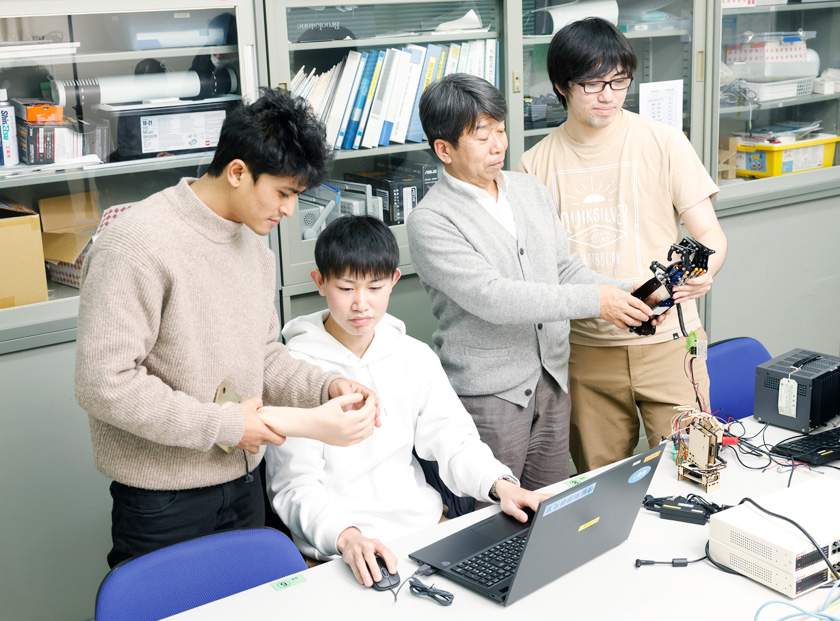
Information control laboratory
In this laboratory, we aim to improve the quality of people's lives by elucidating storage systems and various control mechanisms for archiving digital information.We aim to develop digital information devices and welfare engineering devices. We are developing.
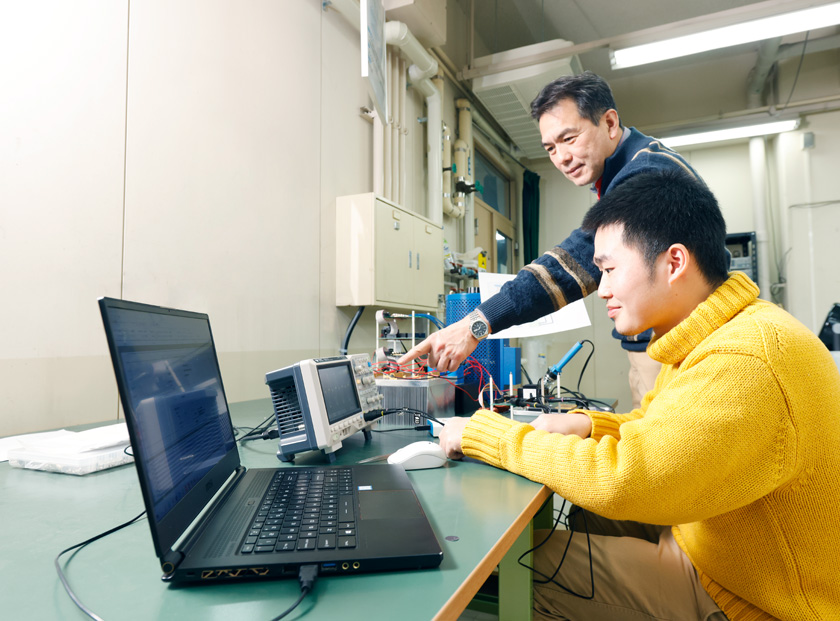
Power electronics laboratory
We are conducting research on power electronics for future electric aircraft. We are conducting research on making DC grid systems of several tens of MW class lighter and more reliable, proposing new types of power converters such as inverters, and conducting demonstration research on making them lighter and more efficient.
Private enterprises
Alpha Systems Co., Ltd. / Vinx Co., Ltd. / Eizan Electric Railway Co., Ltd. / AR Advanced Technology Co., Ltd. / SRA Co., Ltd. / NTT Neomate Co., Ltd. / NTT Facilities Kansai Co., Ltd. / Kansai Electric Power Co., Ltd. / Kyowa Exeo Co., Ltd. / Kinki Nippon Railway Co., Ltd. / Kintetsu Cable Network Co., Ltd. / Kinden Co., Ltd. Main Store / Kurihara Kogyo Co., Ltd. / Kurihalant Co., Ltd. / Comsys Co., Ltd. ADS Company / System Exe Co., Ltd. / Shimadzu Medical Systems Co., Ltd. / Sharp Co., Ltd. / Shirai Electronics Co., Ltd. / Shinsei Electronics Co., Ltd. / Symphonia Technology Co., Ltd. / Sumitomo Densetsu Co., Ltd. / Seibu Electric Co., Ltd. / Daio Electric Co., Ltd. / Dainichi Electronics Co., Ltd. / Daifuku Co., Ltd. / Diamond Electric Co., Ltd. / Daiwa House Industry Co., Ltd. / Daiwa Refrigeration Co., Ltd. / Takatsuki Electric Industry Co., Ltd. / Tajima Shinkin Bank / Chuo Densetsu Co., Ltd. / TDC Software Co., Ltd. / Terasaki Electric Industry Co., Ltd. / Tokyo Computer Service Co., Ltd. / Toshiba Device & Storage Co., Ltd. / Nishishiba Electric Co., Ltd. / West Japan Railway Company (JR West) / Nikken Kosakusho Co., Ltd. / Nippon Steel Tex Engine Co., Ltd. / Japan System Technology Co., Ltd. / Nippon Software Co., Ltd. / Nippon Facilio Co., Ltd. / Noboru Electric Co., Ltd. / Panasonic LS Engineering Co., Ltd. / Hayama Electric Manufacturing Co., Ltd. / Hitachi High-Tech Fine Systems Co., Ltd. / Hitachi Building Systems Co., Ltd. / Fuji Soft Co., Ltd. / Fujita Co., Ltd. / MISUMI Group Headquarters Co., Ltd. / Mitsubishi Electric Engineering Co., Ltd. / Mitsubishi Electric System Service Co., Ltd. / Mitsubishi Electric Plant Engineering Co., Ltd. / Miraite Technologies Co., Ltd. / Meiji Co., Ltd.
public sector
Osaka Prefectural Board of Education/Osaka City Board of Education/Ministry of Defense Ground Self-Defense Force
Osaka Sangyo University Graduate School
Osaka Sangyo University Osaka Sangyo University Graduate School /Osaka Prefecture University Osaka Sangyo University Graduate School
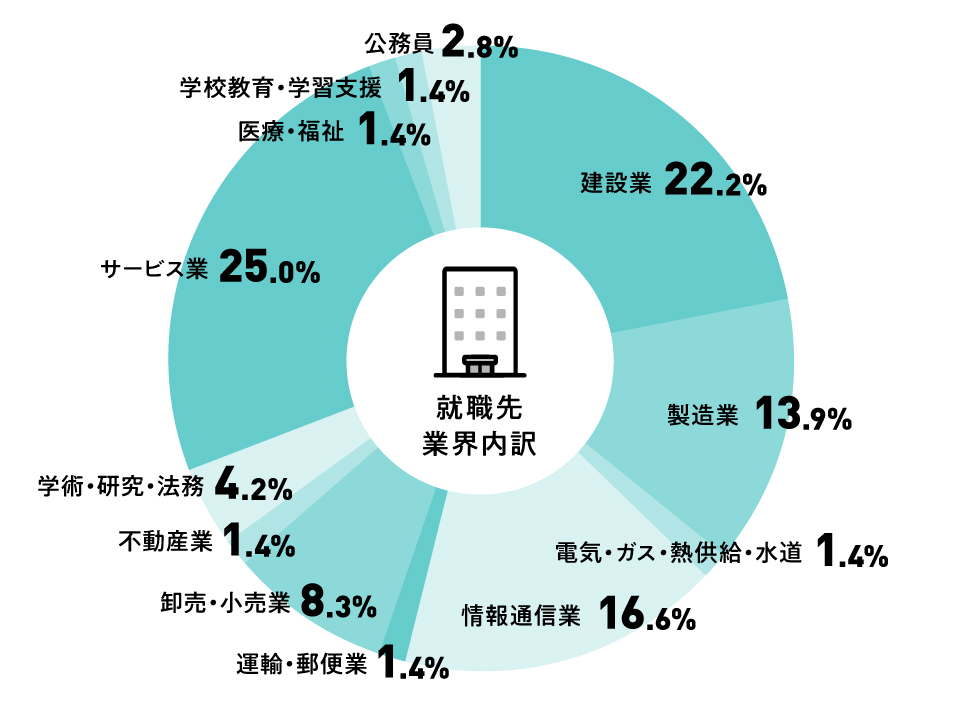
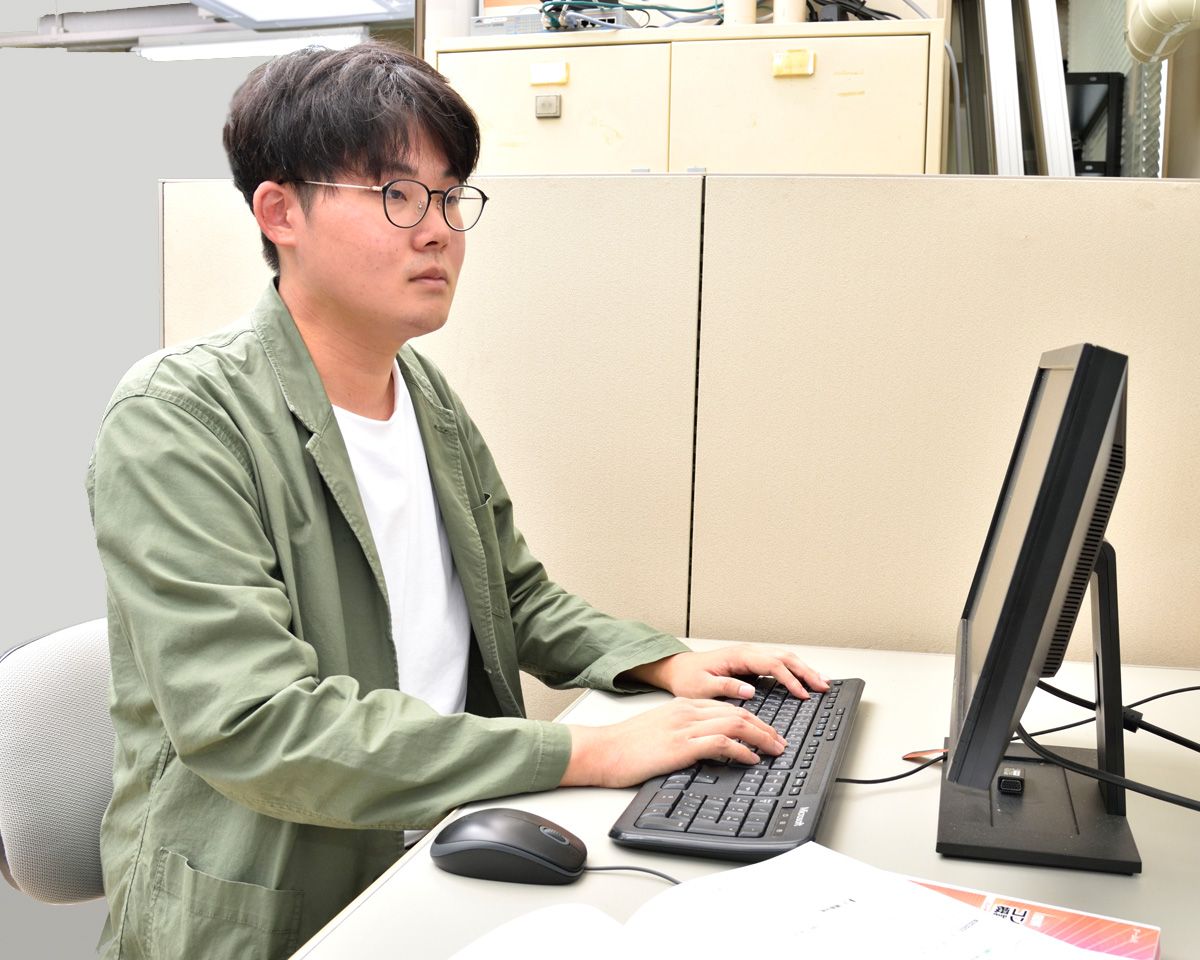
Kansai Electric Power
Co., Ltd.
Mr. Kosuke Maeda
KOSUKE MAEDA
Utilizing the expertise gained at university
For engineers who support infrastructure
Career Center supported my job hunting. Staff with a wealth of experience taught me the basics of working as a working adult, such as document creation and language use. As a result, I was able to get the job offer I had always wanted. I currently belong to the Kansai Electric Power Co., Inc.'s hydropower department, where I perform maintenance on hydroelectric power plants. I feel that my job, which has great responsibility, is rewarding, and that the specialized knowledge I gained while attending school, such as three-phase AC circuits, is useful. I would like to use what I have learned to grow as an engineer and work hard to lead the power infrastructure industry.
National qualification
Qualifications that can be obtained at the same time as graduation
*1 It is necessary to complete the required course credits in the teacher training course.
*2 Certification requirements and required course credits are required.
Qualifications that allow you to take the exam at the same time as graduation (exemption from exam subjects)
*3 Some exam subjects will be exempted by completing the specified subject credits.
*4 Even if you are enrolled in school, you will be exempted from some exam subjects by completing the required credits in the designated subjects.
Qualifications you would like to aim for while attending school or after graduation
*5 You must earn at least 62 credits required for graduation requirements.
Educational and research objectives
In the Department of Electrical, Electronic and Information Engineering, students acquire basic knowledge and a wide range of knowledge and techniques in the fields of electronic, information, and communication engineering that support the highly information-oriented society. The purpose of education and research is to develop human resources with creativity and practical knowledge. To achieve this objective, students will acquire basic knowledge and a wide range of knowledge and skills in the fields of electrical and electronic engineering and electronic information engineering through detailed guidance from faculty with diverse backgrounds.
Educational goals/
three policies